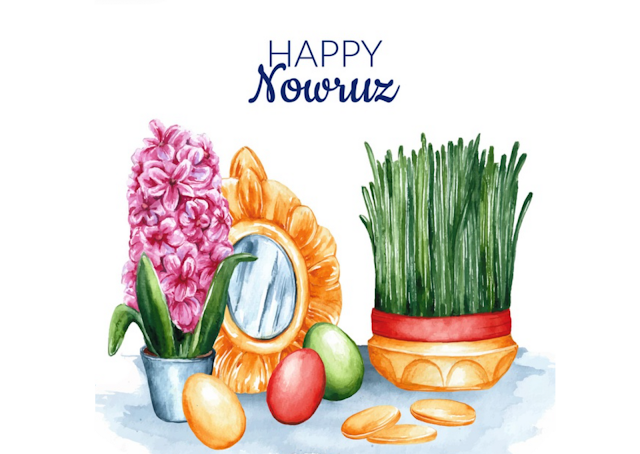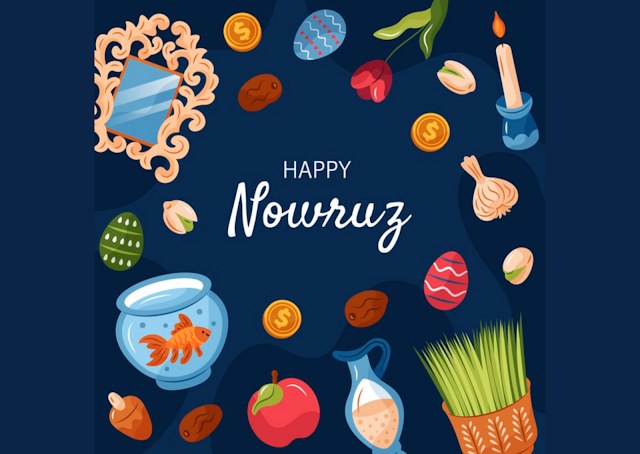Happy Nowruz & Parsi New Year 2023
Persian new year also is known as Nowruz is the Iranian new year. It was celebrated for over 3000 years in western Asia, central Asia, and South Asia. Although it is celebrated all over the world by various groups of people.
Nowruz is the day of the spring equinox and started the beginning of spring in the Northern Hemisphere. According to the Iranian calendar, it is the first day of the first month of Farvardin. It usually occurs on the 21st of March.
The new year began with the arrival of spring in Iran and the millions of Iranians and non-Iranians who celebrate the holiday elsewhere around the world.
What is Nowruz?
The beginning of the new year, i.e. Nowruz, at the vernal equinox. According, to the definition given by the Iranian scientist Tusi, was the following the first day of the official New Year or Nowruz was always the day on which the sun entered Aries before noon. Nowruz is the first day of Farvardin, the first month of the Iranian calendar.
The New Year's Day has carried ahead by over 200 days. The believer of those calendars celebrates the spring equinox as Jamshed-i Nouroz, with New Year's Day then being celebrated in July–August as patet, the day of penitence.
The word Nowruz is the combination of two words Now and Ruz the word Now means new and Ruz means day. The word Nowruz has many varieties of spelling variations that exist the usage in English language, including Novruz, Nowruz, Nauruz, and Newroz.
History and Origin of Nowruz
The foundation of Nowruz as per to Shahnameh Credits to is the mythical Iranian King Jamshid, who saves mankind from winter bound to kill every living creature Jamshid may symbolize the transition of the Proto-Iranians from a hunter-gatherer lifestyle to animal husbandry and a progressively settled life.
To defeat the killer winter, Jamshid constructed a throne covered with gems. He had devil raise him above the earth into the heavens; there he sat, sparkling like the Sun. The world's creatures gathered and disperse jewels around him and proclaimed that this was the New Day.
This was, the first month of the Iranian calendar which is the first day of Farvardin. In spite of the fact that it is not clear whether Proto-Indo-Iranians celebrated a feast as the first day of the calendar, there are some indications that Iranians may have observed the start of both autumn and spring, respectively related to the farming and the sowing of seeds, for the celebration of the New Year.
Since the mutual observations of the ancient Iranians show up in general, to have been seasonal ones and related to farming, it is probable that they traditionally held festivals in both autumn and spring, to mark the significant turning points of the natural year.
It is the belief of the Iranians that Nowruz denotes the first day when the universe began its motion. Gardizi the famous Persian historian, in his work titled Zayn al-Akhbar, under the section of the Zoroastrians festivals, mentions Nowruz and specifically points out that Zoroaster highly emphasized the celebration of Nowruz and Mehrgan.
Nowruz Celebration In Iran
The two-week celebration of Nowruz is that marks the beginning of the New Year in Iran's official Hejri calendar. The celebration started with the four public holidays from the first to the fourth day of Farvardin, the first month of the Iranian calendar, generally beginning on 21 March.
The fire festival Chaharshanbe Suri is celebrated on the Eve of Nowruz. Following the 1979 Revolution, some extreme elements from the Islamic government attempted to suppress Nowruz, considering it an atheist holiday and an interruption from Islamic holidays. Nowruz has been politicized, with political leaders making annual Nowruz speeches.

 Reviewed by 365 Festivals
on
May 23, 2022
Rating:
Reviewed by 365 Festivals
on
May 23, 2022
Rating:














































No comments: